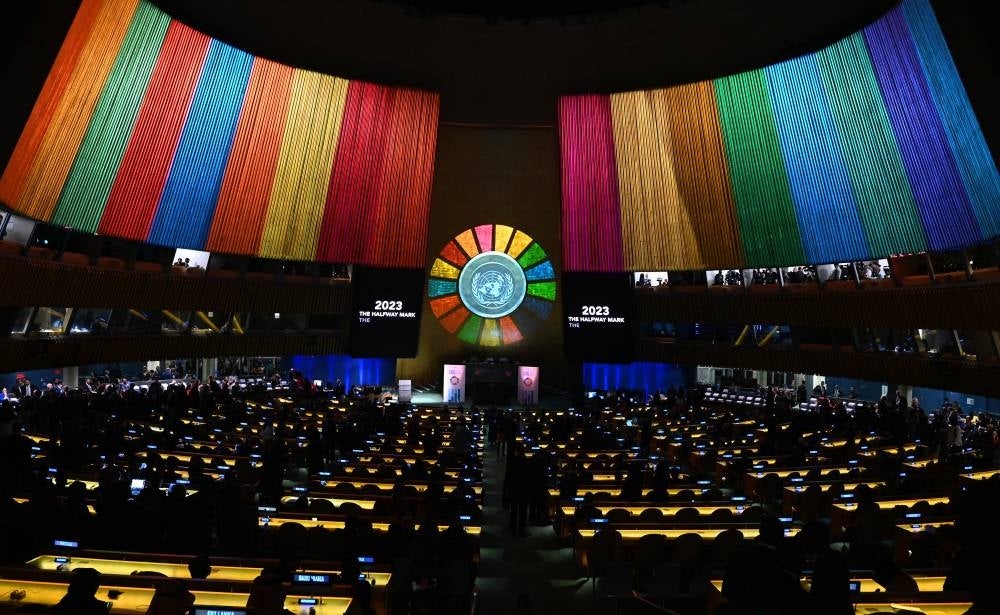Mindfulness in waste management as a catalyst to realising the UN's SDG
PRAVEENA NAIR SIVASANKARAN
At the intersection of waste management, mindfulness, and the United Nations' Sustainable Development Goals (UN SDGs) lies an unexplored landscape of transformative potential. This is as they are not merely independent ideas but interconnected gears in the machinery of global sustainability.
A Crisis Overlooked: The True Implications of Waste Management
The act of managing waste does not simply mean discarding trash in an appropriate place. It serves as a linchpin for complex, global issues such as environmental justice, public health, and economic growth. Poor waste management contributes to polluted oceans, greenhouse gas emissions, and inequality, making it far more than just a localised issue — it is a global crisis that necessitates urgent action and attention.
Mindfulness: A State of Awareness with Global Consequences
Transcending its origins in wellness and spirituality to serve as a cornerstone for tackling complex societal challenges, mindfulness awakens a keen sense of awareness regarding our daily consumption patterns and waste disposal habits. For example, a soda may seem trivial when discarded, but a mindful approach to its disposal can make a tangible difference in the fight against pollution and waste.
Synergies with the UN 17 SDGs
As a comprehensive framework for tackling the planet's most pressing challenges, each goal offers a unique opportunity to integrate mindful waste management practices.
No Poverty: Responsible waste management can open doors to economic opportunities such as the creation of new jobs, specifically in recycling, composting, and waste sorting sectors, as well as uplift impoverished communities.
Zero Hunger: Composting food waste creates nutrient-rich soil for farming. Mindfulness in consumption and waste can reduce food waste, which is essential for combating hunger.
Good Health and Well-Being: Proper waste disposal prevents the spread of diseases caused by water and soil pollution – leading to cleaner surroundings and better public health.
Quality Education: Educational institutions can include waste management and mindfulness as part of their curricula. Teaching the younger generation to be mindful of their waste can inspire future leaders to create sustainable policies.
Gender Equality: Ensuring that waste management projects include both men and women – citizens who are most affected by improper waste disposal practices – can be a step towards gender equality.
Clean Water and Sanitation: Crucial for human health, mindful waste management means ensuring toxins and waste do not pollute water bodies.
Affordable and Clean Energy: Through waste-to-energy technologies, waste management can contribute to creating cleaner renewable energy that can result in more sustainable energy solutions.
Decent Work and Economic Growth: Creating sustainable jobs in the waste management sector contributes to decent work conditions with no exploitation of workers seen for the rise of economic growth.
Industry, Innovation, and Infrastructure: Mindfulness can inspire innovative solutions for waste reduction and recycling, thus contributing to sustainable industrial practices.
Reduced Inequality: Being mindful of how waste impacts different communities can help reduce inequality by implementing waste management practices.
Sustainable Cities and Communities: Mindfulness encourages responsible consumption patterns and effective waste management, essential for building sustainable cities and communities.
Responsible Consumption and Production: Being mindful of what and how much one consumes inevitably leads to reduced waste and, therefore, more responsible consumption and production.
Climate Action: Effective waste management can significantly reduce greenhouse gas emissions. Mindfulness about energy consumption and waste can contribute to global climate action.
Life Below Water: Mindful waste management means preventing harmful waste from entering our oceans, thus protecting marine life.
Life on Land: Similarly, proper waste disposal protects terrestrial ecosystems from degradation – playing a role in preserving biodiversity.
Peace and Justice, Strong Institutions: Transparency in waste management policies contributes to building trust among communities, which is essential for peace and justice.
Partnership for the Goals: Mindful waste management requires multi-stakeholder partnerships to encourage responsible waste disposal and achieve these global goals.
It is evident that waste management and mindfulness are not mere buzzwords but essential strategies in achieving the UN SDGs. Therefore, integrating mindful waste management practices into policy and community programmes becomes not just an option but a necessity for global sustainability.
To see these theoretical concepts in action, the upcoming PERMINDA Symposium scheduled from 9am to 5pm on Nov 20 and 21 at Taylor’s University Lakeside Campus, The Grand Hall, presents an opportunity for society to adopt a multi-pronged approach to a sustainable future. Spearheaded by Taylor’s Clean Technology Impact Lab and the School of Engineering, this event serves as a platform to break down the silos by showcasing the confluence of waste management, mindfulness, and the UN's SDGs – imperative initiatives for the global community.
Dr Praveena Nair Sivasankaran is the Deputy Director of Taylor’s Clean Technology Impact Lab and a Senior Lecturer at the School of Engineering, Faculty of Innovation & Technology, Taylor’s University.










